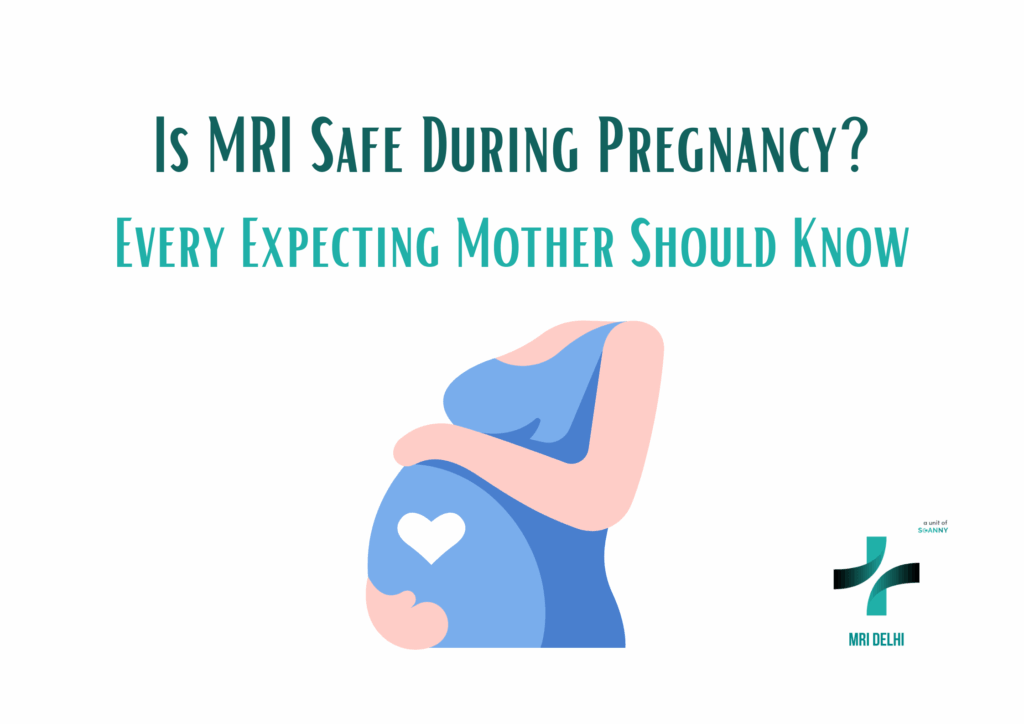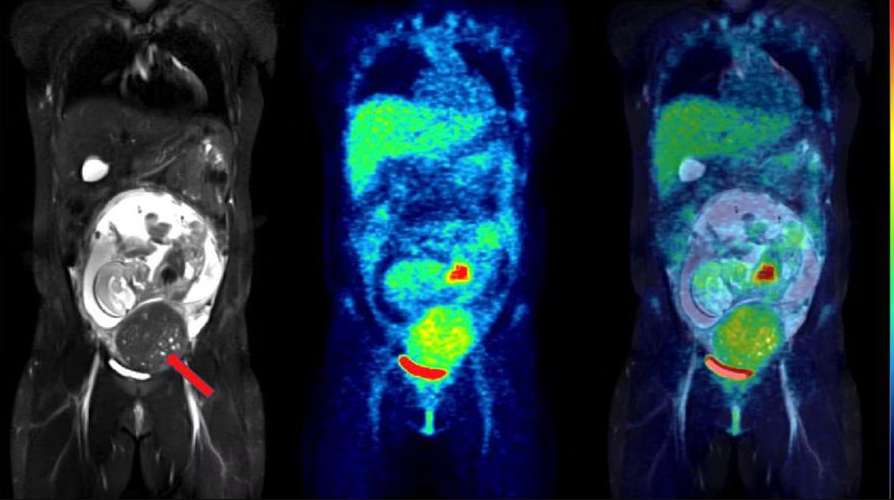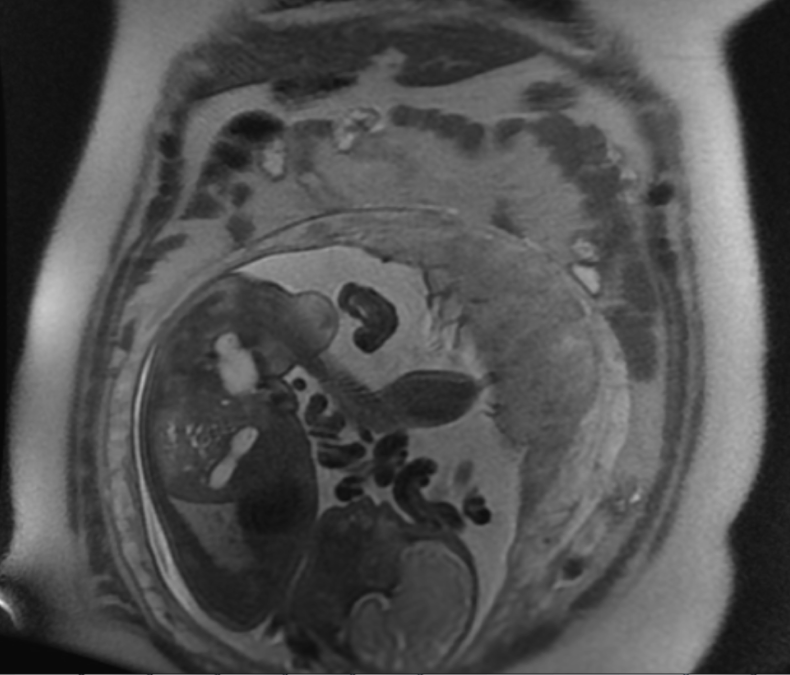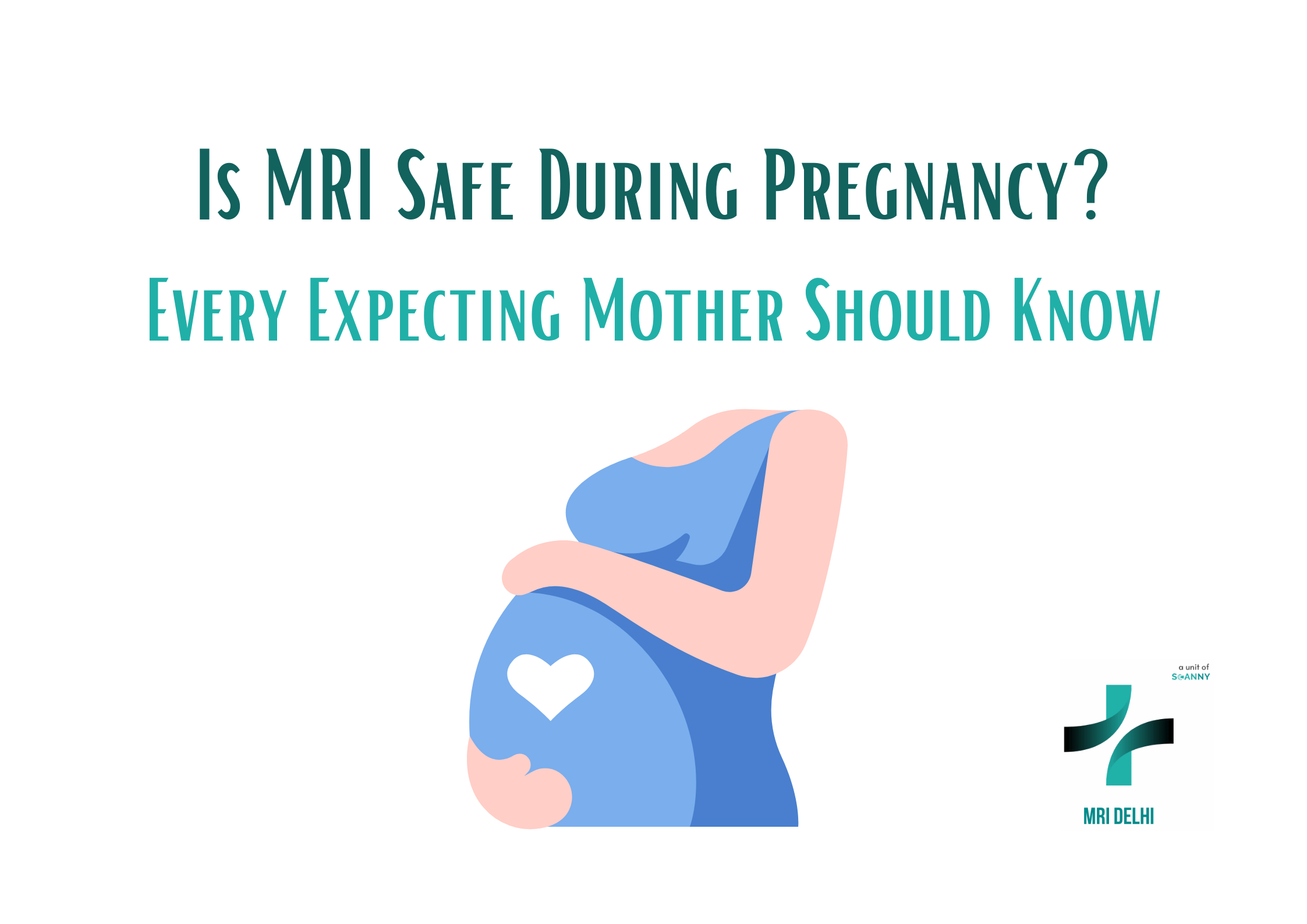Pregnancy brings countless questions about what’s safe for you and your growing baby. When your doctor suggests an MRI scan, it’s natural to feel concerned. You want the best care possible while protecting your little one from any potential risks.

The good news? MRI scans are generally considered safe during pregnancy, but like most medical procedures, timing and necessity matter. Let’s see what current medical research tells us about MRI safety for expectant mothers.
What Makes MRI Different from Other Imaging?
Magnetic Resonance Imaging (MRI) uses powerful magnetic fields and radio waves to create detailed pictures of your body’s internal structures. Unlike X-rays or CT scans, MRI doesn’t use ionizing radiation—the type that can potentially harm developing babies.
This fundamental difference makes MRI a preferred imaging choice when doctors need detailed pictures during pregnancy. The magnetic fields and radio waves used in MRI haven’t shown harmful effects on developing fetuses in numerous studies spanning decades.
The Science Behind MRI Safety During Pregnancy
Medical organizations worldwide have studied MRI use in pregnant women extensively. The American College of Obstetricians and Gynecologists, along with the American College of Radiology, have established guidelines based on years of research and clinical experience.
Current evidence shows no adverse effects on pregnant women or their babies from MRI scans performed without contrast agents. Studies have tracked thousands of women who had MRI scans during pregnancy, and their babies showed no increased rates of birth defects, hearing problems, or developmental delays.
The magnetic fields used in clinical MRI machines—typically 1.5 to 3 Tesla—fall well within safety limits established for pregnant women. These field strengths have been used safely for decades across millions of scans.
When Do Doctors Recommend an MRI During Pregnancy?
Your healthcare provider might suggest an MRI for several reasons during pregnancy:
Maternal Health Concerns Sometimes pregnancy complications require detailed imaging that only MRI can provide. Conditions like appendicitis, kidney stones, or neurological symptoms might need MRI evaluation when ultrasound doesn’t provide enough information.

Fetal Development Questions While ultrasound remains the primary tool for monitoring baby’s development, MRI offers superior detail for certain fetal conditions. Brain development, spinal cord formation, and organ development can be assessed more thoroughly with MRI when doctors need additional information.
Emergency Situations Urgent medical situations don’t wait for convenient timing. When immediate diagnosis is crucial for maternal or fetal health, MRI provides rapid, detailed imaging without radiation exposure.
Timing Considerations Throughout Pregnancy
First Trimester (Weeks 1-12) Medical guidelines suggest avoiding non-urgent MRI scans during the first trimester when possible. This recommendation comes from an abundance of caution rather than proven risks. The first trimester represents the most critical period of organ development, so doctors prefer to minimize any medical interventions unless absolutely necessary.
Emergency situations may still warrant first-trimester MRI when the benefits clearly outweigh theoretical risks. Life-threatening conditions affecting the mother require immediate evaluation regardless of pregnancy stage.
Second and Third Trimesters (Weeks 13-40) MRI safety becomes even more established during these later stages of pregnancy. The baby’s major organ systems have formed, and research shows no adverse effects from MRI exposure during this period.
Many fetal MRI studies are specifically performed during the second and third trimesters when detailed anatomical assessment provides the most clinical benefit.
What About Contrast Agents?
Gadolinium-based contrast agents present a different consideration. These substances, sometimes used to enhance MRI images, can cross the placenta and reach your baby. While no definitive harm has been proven, medical organizations recommend avoiding gadolinium contrast during pregnancy unless absolutely essential.
Most pregnancy-related MRI scans provide excellent diagnostic information without contrast enhancement. When contrast is considered necessary, doctors weigh the potential benefits against theoretical risks on a case-by-case basis.
The MRI Experience During Pregnancy
Physical comfort becomes a bigger consideration as pregnancy progresses. MRI machines require you to lie still for 15-45 minutes, which can become uncomfortable with a growing belly.
Most facilities accommodate pregnant patients with positioning aids, pillows, and breaks when needed. Side-lying positions often work better than lying flat on your back, especially in later pregnancy when the baby’s weight can compress major blood vessels.

The loud noises MRI machines make won’t harm your baby. The womb provides natural sound dampening, and babies are already accustomed to various sounds from your body’s normal functions.
Alternative Imaging Options
Ultrasound remains the gold standard for routine pregnancy monitoring. It’s safe, widely available, and provides excellent information for most pregnancy-related concerns. However, ultrasound has limitations in certain situations where MRI excels.
X-rays and CT scans involve radiation exposure, making them less desirable during pregnancy. When these imaging methods are suggested, doctors carefully consider the radiation dose and potential risks versus the medical necessity.
Making the Decision With Your Healthcare Team
Your doctor’s recommendation for MRI during pregnancy means they believe the diagnostic benefit outweighs any theoretical risks. This decision involves careful consideration of your specific medical situation, pregnancy stage, and available alternatives.
Don’t hesitate to discuss your concerns openly. Questions about timing, alternatives, and necessity help ensure you’re comfortable with the decision. Your healthcare team wants you to feel informed and confident about any medical procedures during pregnancy.
Current Research and Future Directions
Ongoing research continues to reinforce MRI safety during pregnancy. Large-scale studies following children exposed to MRI in utero show no long-term developmental differences compared to unexposed children.
Technology improvements continue making MRI faster and more comfortable for pregnant patients. Newer techniques reduce scan times while maintaining image quality, minimizing discomfort during the procedure.
International Perspectives
Medical organizations worldwide maintain similar positions on MRI safety during pregnancy. The Royal College of Radiologists, European Society of Radiology, and other international bodies echo the safety guidelines established by American medical organizations.
This international consensus reflects the robust body of evidence supporting MRI safety when medically indicated during pregnancy.
Frequently Asked Questions
Can MRI hurt my unborn baby?
Current medical evidence shows no harmful effects from MRI scans on developing babies. The magnetic fields and radio waves used in MRI don’t damage tissues or cause birth defects. Thousands of pregnant women have had safe MRI scans with no adverse effects on their children.
Is it safer to wait until after delivery for non-urgent MRI?
For non-urgent medical issues, waiting until after delivery is often preferred but not always practical or safe. Your doctor will weigh the medical necessity against the timing. Some conditions require prompt evaluation regardless of pregnancy status.

What about the loud noises during MRI – can they damage my baby’s hearing?
The sounds from MRI machines don’t harm your baby’s developing hearing. The amniotic fluid and your body tissues provide natural sound dampening. Your baby is already accustomed to various sounds from your heartbeat, digestive system, and blood flow.
Are there any long-term effects on children exposed to MRI in the womb?
Large studies tracking children exposed to MRI during pregnancy show no increased rates of developmental delays, learning disabilities, or health problems compared to unexposed children. The long-term safety record is reassuring.
Can I have an MRI if I’m trying to get pregnant?
If there’s any chance you might be pregnant, inform your healthcare team before the MRI. Early pregnancy (before you know you’re pregnant) falls under the same safety guidelines as known pregnancy.
What if I need contrast dye for the MRI?
Gadolinium contrast agents are generally avoided during pregnancy unless absolutely necessary. Most pregnancy-related scans provide excellent diagnostic information without contrast enhancement.
How long does an MRI take during pregnancy?
MRI scan duration varies from 15-45 minutes depending on what needs to be examined. Pregnancy doesn’t typically extend scan times, though positioning adjustments might be needed for comfort.
Can I request to avoid MRI during pregnancy?
You can always discuss alternatives with your doctor. However, when MRI is recommended, it’s usually because other imaging methods can’t provide the necessary diagnostic information for your specific situation.

What should I expect during the MRI procedure while pregnant?
You’ll lie on a padded table that slides into the MRI machine. Technologists will position you comfortably, often on your side in later pregnancy. You’ll receive ear protection for the noise and can communicate with staff throughout the scan.
Are there certain pregnancy complications that especially benefit from MRI?
MRI provides superior imaging for brain and spinal cord development, certain heart defects, and complex anatomical questions that ultrasound can’t fully answer. It’s also valuable for evaluating maternal conditions like appendicitis or neurological symptoms.
Should I be concerned if my doctor says the MRI is urgent?
Urgent MRI recommendations during pregnancy mean your doctor believes immediate diagnostic information is crucial for your health or your baby’s wellbeing. The benefits of prompt diagnosis outweigh theoretical risks in these situations.
Making Peace With the Decision
Medical decisions during pregnancy often feel overwhelming, especially when they involve procedures you haven’t experienced before. MRI during pregnancy represents one of those situations where decades of research support safety, but natural maternal protective instincts might still create anxiety.
Trust in your healthcare team’s expertise while advocating for clear communication about why the MRI is needed and what alternatives exist. The decision to proceed with MRI during pregnancy reflects careful consideration of your unique medical circumstances balanced against well-established safety data.
Your peace of mind matters too. A mother’s stress and anxiety can affect pregnancy, so feeling confident in medical decisions contributes to overall wellbeing for both you and your baby.
Remember that millions of women have safely undergone MRI scans during pregnancy, contributing to better health outcomes for themselves and their babies. Your situation is part of this larger picture of evidence-based medical care designed to protect and support healthy pregnancies.

